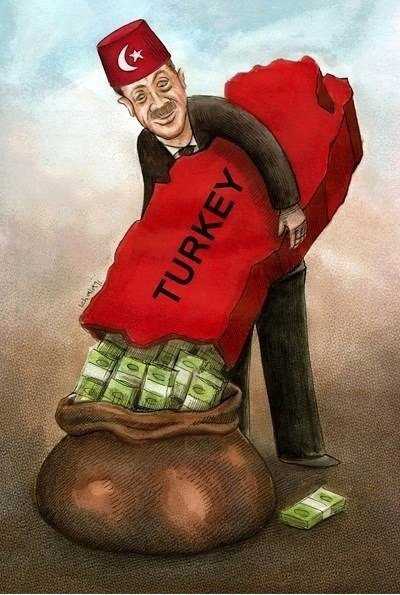Premier can no longer return country to moderate path
 Recep Tayyip Erdogan, Turkey’s prime minister, this weekend faces the biggest test of his 11 years in power. In the past few months, the 60-year-old premier has polarised Turkish society by passing a raft of illiberal laws with the apparent intent of protecting himself and his cronies from corruption allegations that have rocked his government. To save his political skin, Mr Erdogan reassigned thousands of police officials investigating the allegations. He has now gone a step further by banning Twitter and YouTube ahead of the vote. Understandably, many fear Turkey is lurching towards authoritarian government.
Recep Tayyip Erdogan, Turkey’s prime minister, this weekend faces the biggest test of his 11 years in power. In the past few months, the 60-year-old premier has polarised Turkish society by passing a raft of illiberal laws with the apparent intent of protecting himself and his cronies from corruption allegations that have rocked his government. To save his political skin, Mr Erdogan reassigned thousands of police officials investigating the allegations. He has now gone a step further by banning Twitter and YouTube ahead of the vote. Understandably, many fear Turkey is lurching towards authoritarian government.
Mr Erdogan faces a moment of reckoning on Sunday when Turks vote in local elections across the country. If Mr Erdogan’s AK party scores about 45 per cent or higher, his position will be consolidated and he will be in a position to meet his goal of running for the Turkish presidency. But if he wins less than 40 per cent or loses the crucial cities of Istanbul or Ankara, his leadership will be seriously damaged.
The people of Turkey must decide their political future. That is only right. But even if Mr Erdogan performs well – and the AKP retains a very strong following in its Anatolian heartland and beyond – he can no longer be regarded as a figure who can unite Turkey and return the country to stability. Turkey must start looking for its next generation of leaders – even within the ranks of the AKP – who can end the political turmoil.
The fundamental problem the nation faces is the schism between Mr Erdogan and Fethullah Gulen, a powerful Sunni Muslim cleric based in Pennsylvania. A decade ago, Mr Erdogan and Mr Gulen joined forces to conduct a peaceful revolution against Turkey’s army and secularist leaders, allowing the moderate Muslim AKP to consolidate power. Now the Gulenists are leveraging their position inside Turkey’s security and judicial structures to undermine Mr Erdogan, whom they believe has become a detached authoritarian. As is often the case in history, the revolution is devouring its own children.
The internecine warfare is destroying Turkey’s independent institutions and the international reputation it earned in the early years of AKP power. Then it was hailed as an example of a moderate democratic Muslim majority state. In order to sully Mr Erdogan’s reputation, the Gulenists, members of a shadowy group that can in no way be seen as a responsible opposition, appear to be leaking compromising tape recordings alleging corruption by Mr Erdogan and his allies. Mr Erdogan’s ban on Twitter, which is still in force despite an adverse court ruling, came as he tried to staunch the leaks. Overall, Mr Erdogan’s high-handed conduct in office brings immense cost to the country’s standing.
When set against the past decade of Turkish history, this is a tragic turn of events. At the start of the millennium, Turkey acquired much political favour in the west as it carried out reforms under the aegis of the International Monetary Fund and the EU.
Once the country’s negotiations on EU membership stalled, progress quickly unwound. But what the country is also discovering is that the strong levels of economic growth enjoyed during Mr Erdogan’s first decade in office may be drawing to an end. Growth this year could be a mere 2 per cent, down from about 9 per cent a few years back.
This weekend’s election must therefore mark a watershed in Mr Erdogan’s leadership. Whatever the result, the way forward for Turkey is to restore authority and integrity to the nation’s institutions. It may well be that Mr Erdogan wins enough backing on Sunday to remain at the helm of national politics. But his reputation as a statesman is shredded.
FT, 28 March 2014

